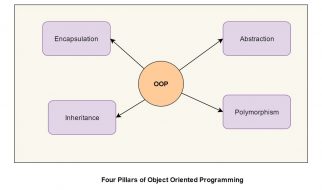How a tweet about Ariana Grande made me realize the extent of harm this subculture has done.
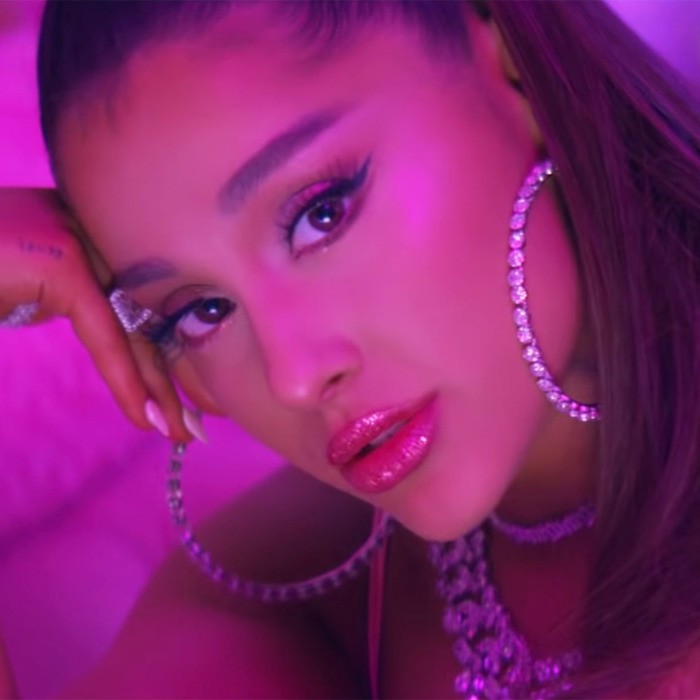
The way in which pop culture is consumed in the 2010s is unlike anything else we have witnessed since the dawn of pop culture itself. Social media has created a hyperreality wherein the distance between regular individuals and their idols is slowly shortening, or at least appearing to. This is most obviously seen within ?stan Twitter?, a section of Twitter dedicated to celebrities even to the most harmful lengths.
I want to make myself clear here: I don?t hate stans or stan Twitter. Throughout my teenage years, I was part of this subculture in various ways, whether it be K-Pop, One Direction, Justin Bieber, 5SOS and ? ironically enough ? Ariana Grande. Through ?standoms? I was able to meet people and make friends in a way I couldn?t in real life. I felt as if I were part of a community, that I finally belonged. But, as I got older, I realized the obsession I had wasn?t healthy, and that?s why I worry about the direction that many young people seem to be heading in. Their dedication to strangers in order to boost their own self-esteem feels almost like a car crash ready to happen and, for some, it already has.
But, though this is undoubtedly a phenomenon of the social media era, in order to understand what stan Twitter is and its origin, we need to travel back to a time before Twitter even existed.
Currently, on Urban Dictionary, a stan is defined as an overzealous maniacal fan for any celebrity or athlete, stemming from Eminem?s 2002 hit, Stan. In the video, Stan wants Eminem to make contact with him but Eminem doesn?t reply to his letters and, due to this, Stan thinks he has been ignored. As revenge, Stan ties up his own girlfriend, stows her in his trunk, drives along a rain-soaked highway and drives off a bridge. Eminem gets around to responding and says how thankful he is for the support, only to understand that Stan is obsessed with him and then, finally, to connect the dots and realize that he?s the man who killed his girlfriend.
What many psychological professionals would describe this as is a parasocial relationship. This is not a made up disorder nor an armchair diagnosis, but simply the definition to a relationship many people have with famous figures. Parasocial relationships are one-sided dynamics in which energy, interest and time are extended towards the object of obsession whilst they (commonly a celebrity) remain ignorant of the existence of the other.
But, though critics and think piece writers often frame them as a symptom of young people?s generational rot, behaviours such as this are not new in the slightest. Before the boom of social media, obsessive fans had existed for a long, long time ? such as during the Roman reign, where people collected gladiators? sweat out of admiration; or the Victorian era, when hordes of fans forced author Arthur Conan Doyle to revive his star character, Sherlock Holmes. The Beatles had a superfan plotting to murder John Lennon, Michael Jackson had to prove that he didn?t impregnate a stalker, and Uma Thurman received a card from a fan that had a drawing of an open grave, a headstone and a man standing on the edge of a razor blade.
This is not an exclusively Western phenomenon either. In Korea, this type of idolatry exists heavily within the K-Pop industry. Sasaeng fans are over-obsessive fans of musical idols, to the point that they engage in stalking. According to Yahoo Lifestyle, Korean idols have been filmed, had their phones wiretapped, and even had fans breaking into their homes.
What makes this new era of ?stalker fans? different, in my opinion, is the admiration that seems to be growing towards such behaviours. Today, even as a joke, the terminology of ?stalker fan? or ?stan? has been the latest object of amelioration ? where a word?s negative meaning is elevated to a positive one.
Last year when culture writer Wanna Thompson received a hateful DM from rapper Nicki Minaj and decided to share it, the following backlash shone a light for many in regards to this behaviour. Minaj clapped back at a comment Thompson had made on her Twitter account and Thompson brought it to her timeline, shocked that a celebrity of that magnitude could do such a thing. According to an interview with the New York Times, Wanna received hateful messages via Twitter, Instagram, Facebook and even email; including insults to her infant daughter and suicide bait. The majority of these hateful words came from stans, who seemed to have a soldier-like sense of duty to protect Minaj. It was as if they would do anything for their idol.
Though Wanna and Nicki?s beef was recent and particularly notorious, one could pick any of all the major stan groups and they?d find that they all exhibit this need to protect their idols from critique, even when it is valid. Which brings me to the point of this article.
We need to talk about Ariana Grande.
It was last week when Grande released her song ?7 Rings? and, as a longtime fan of the 25-year-old star, I was ecstatic. I loved the song and felt like she was finally blossoming into the artist she could always be. That was until it was rightfully pointed out to me that Ariana was walking along a tightrope that many young white pop stars toe ? and often fall off of. Like many ex-child stars before her, Ariana was rebelling against her ?good girl? image by appropriating Black culture. And as much as I love Grande, I couldn?t ignore this issue, which has plagued Black culture for years. The more I listened to 7 Rings, the more I understood why it made people, specifically Black women uncomfortable. While I wasn?t the most damning critic of Grande?s song, I immediately got pushback for suggesting that those who dislike it weren?t in the wrong. Historically white pop stars have been able to cross genres (pop to trap, in Grande?s case) while Black singers haven?t.
I was noticing that anytime someone dared speak about Grande, they were silenced by her fans and stans alike, even though some of the people criticizing Ariana might have disliked her already, or been indifferent to her, many of us truly loved her music. Though stan Twitter might have you thinking otherwise, critical consumption doesn?t negate enjoyment. I and many others are perfectly able to spot the problematic aspects of music, writing and film whilst still having fun with it. Critical thinking only makes our experience richer, and definitely doesn?t mean that we hate an artist for making mistakes.
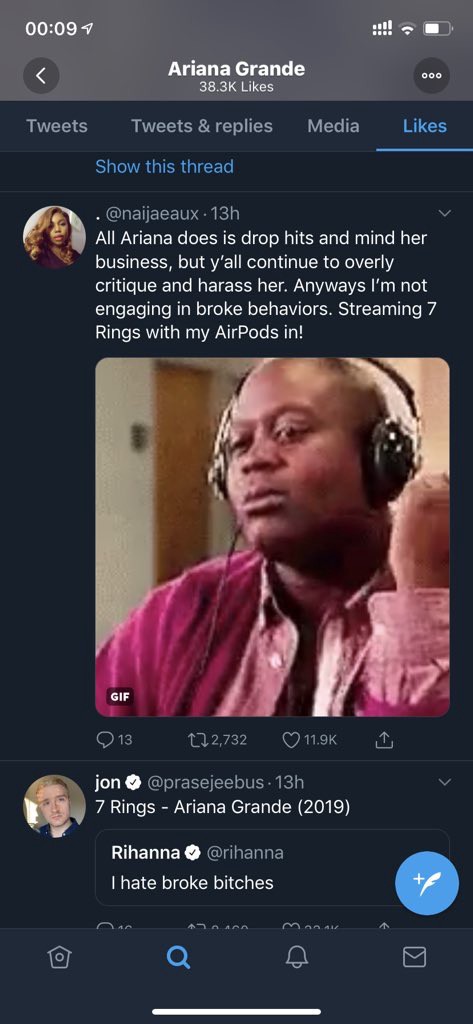
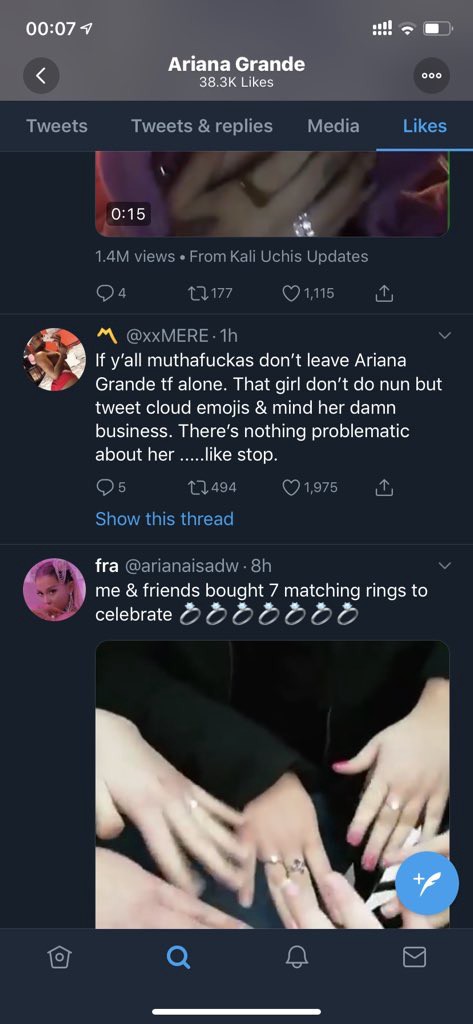 Ariana Grande?s Twitter likes
Ariana Grande?s Twitter likes
The drama culminated when people noticed that Ariana herself was liking tweets defending 7 Rings, its music video and the genre choice. I find that, when celebrities try to defend themselves against valid critiques such as cultural appropriation, it does more harm than good. This self-victimization causes the stans to be even more defensive and thus lash out against anyone critiquing their idol. Grande seemingly felt attacked or felt that these critics ? mainly Black women ? were harassing her. Her fans didn?t just internalize those feelings as their own but, of course, felt the need to defend Ariana by attacking anyone who dared criticize her.
I probably wouldn?t be paying as much attention to this if I hadn?t been also a victim of the harassment her stans were dishing out online. What sparked it, you may ask! I had simply tweeted a ?judgemental? reaction image in response to Ariana?s Instagram story. In it, it seemed that someone had jokingly written in their Insta-story: You like my hair? Gee, thanks just bought it? *kissing emoji*!!!! white women talking about their weaves is how we?re going to solve racism. Grande then proceeded to repost that story, thanking the OP for praise, even though it was clearly a mockery of that line.
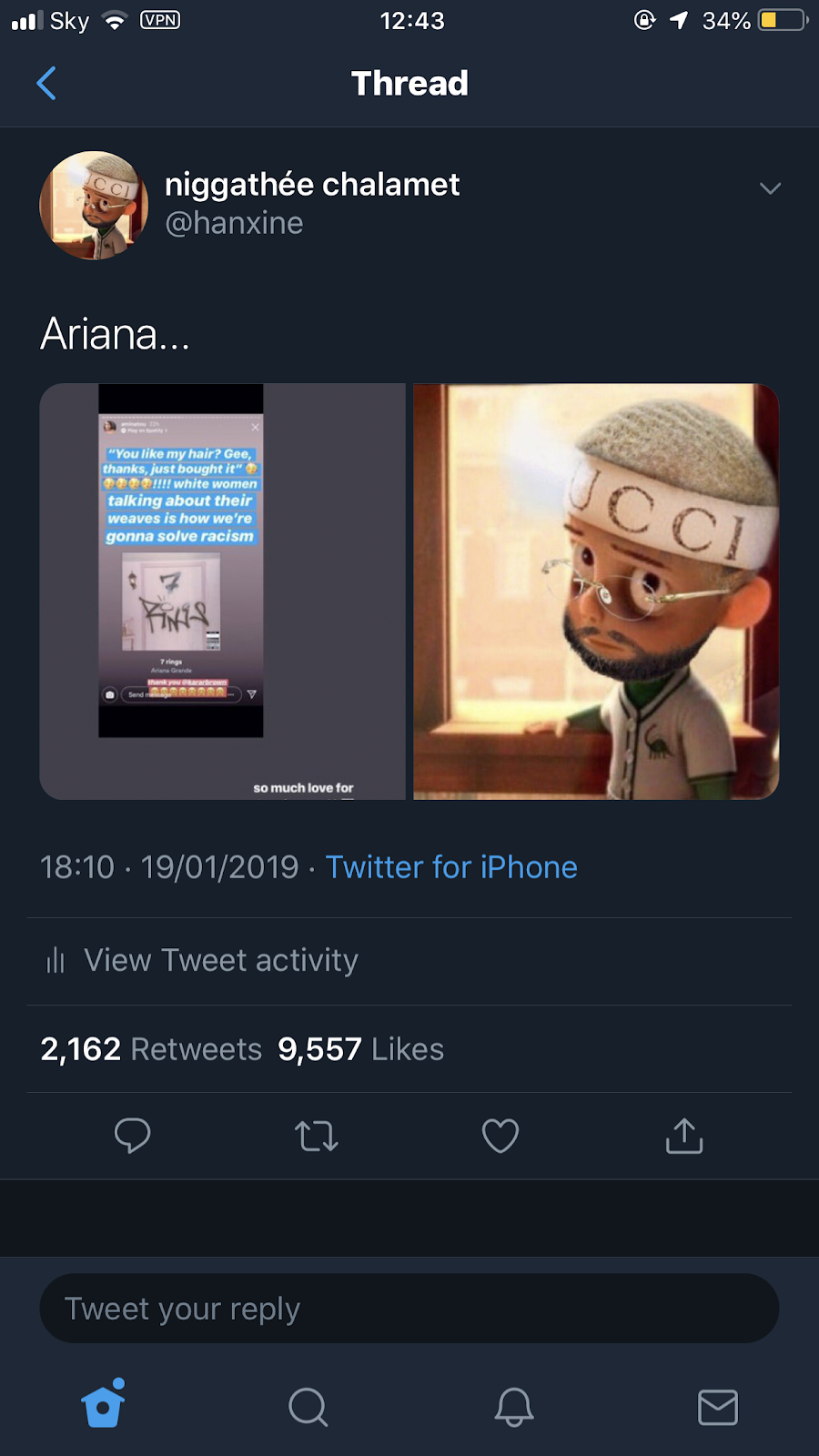
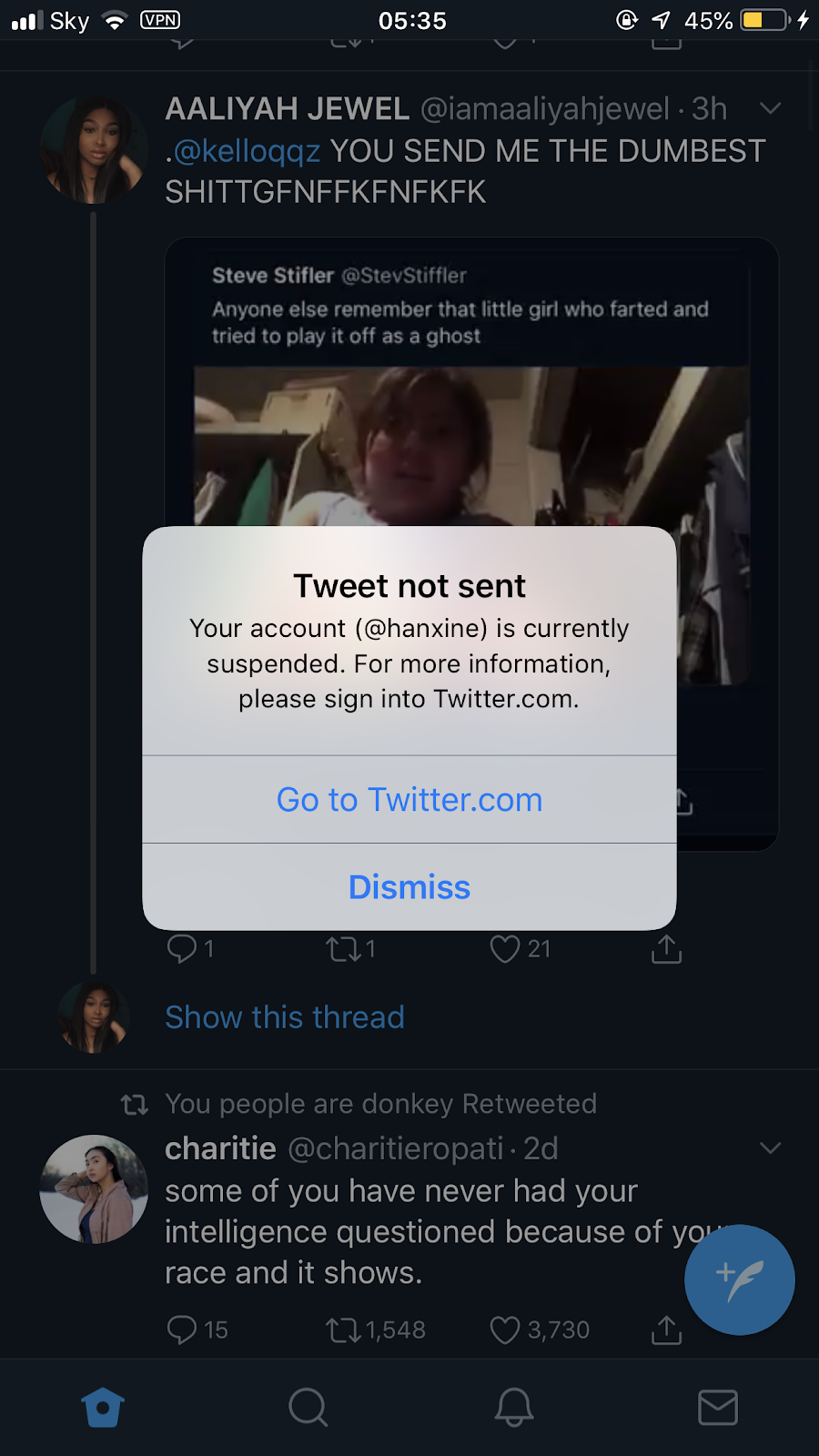 The tweet I posted in reaction to the instastory and my suspended account.
The tweet I posted in reaction to the instastory and my suspended account.
As I mentioned earlier, I?d already gotten pushback from Ariana?s stans, and I didn?t care if people got mad at me. I would have continued on not caring but, after that tweet started circulating, it got to a point where my direct messages started blowing up with fans threatening me and telling me to delete it or else. I didn?t pay them any mind since I felt that there was no reason to take their threats seriously. However, come the next morning I woke and saw that my Twitter account had been suspended. It didn?t take long for me to realize that I had been falsely reported by stans in order to get the tweet taken down.
You see, Twitter?s reporting system is beyond repair. Reports are evaluated by algorithms, making it ridiculously easy for abusive accounts to skirt suspension by misspelling slurs, and even easier for ill-intentioned people to ?game? the system by mass-reporting innocent users. I only got a tenth of the backlash that Thompson received from Minaj fans and yet my Twitter account, a platform on which I had built a following of 12,000 and which held contacts throughout various industries was gone. Not only that but, once I tweeted on my new account that I had been suspended unfairly, stans started to mock me and say that I deserved it for posting that tweet. A tweet that simply reacted to a foolish post of Grande?s ? which, mind you, she acknowledged as such and took down.
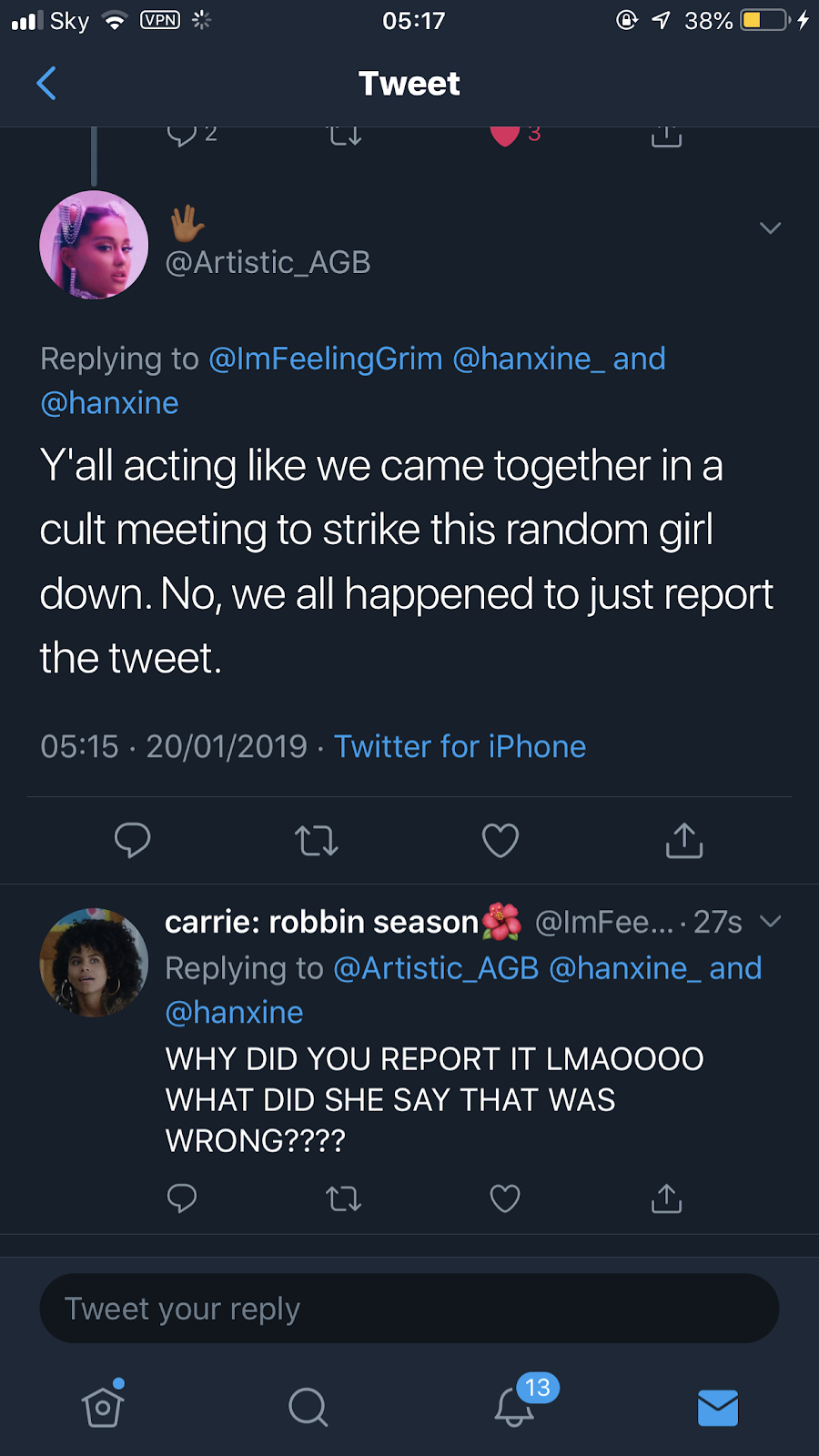
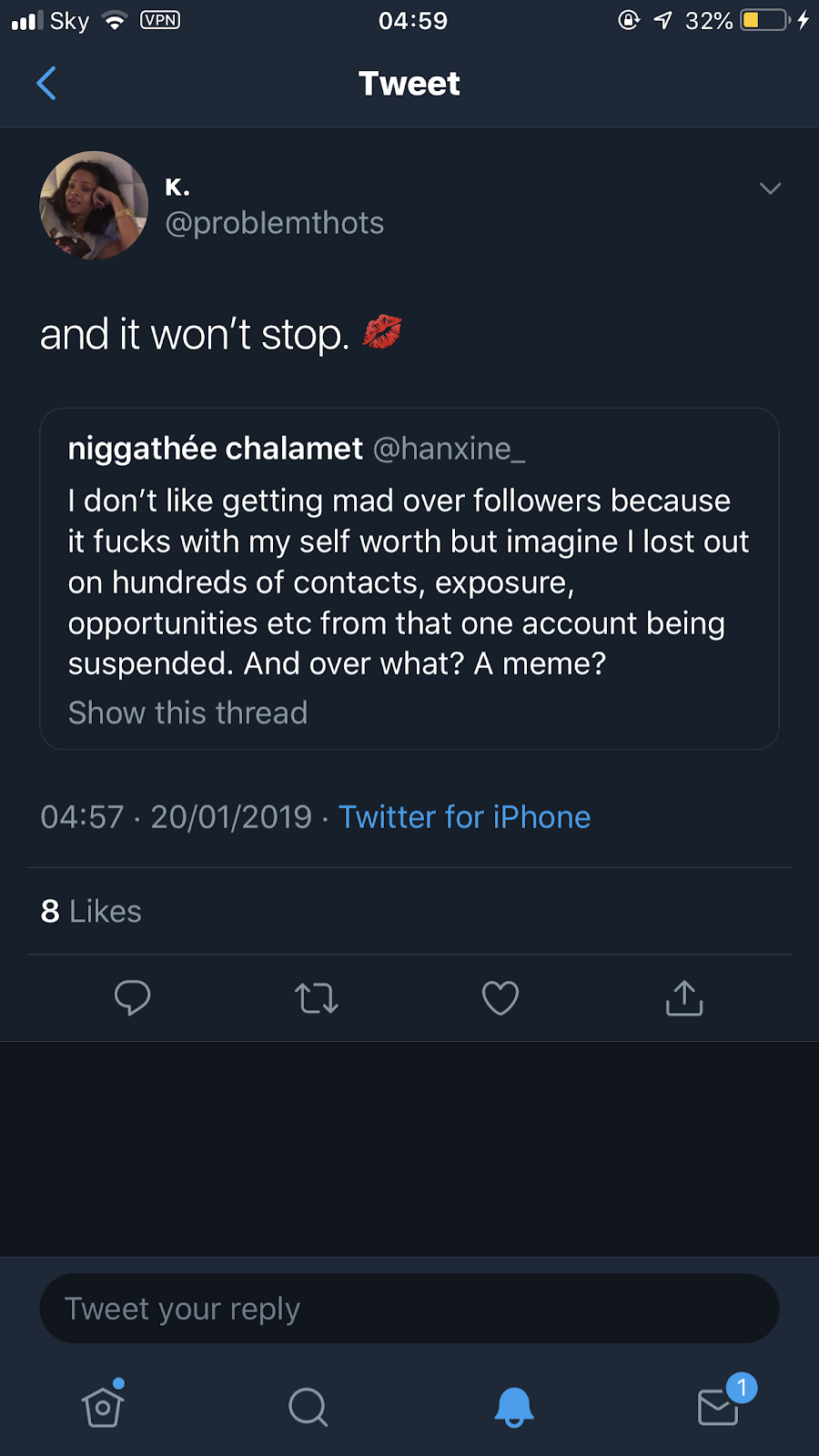
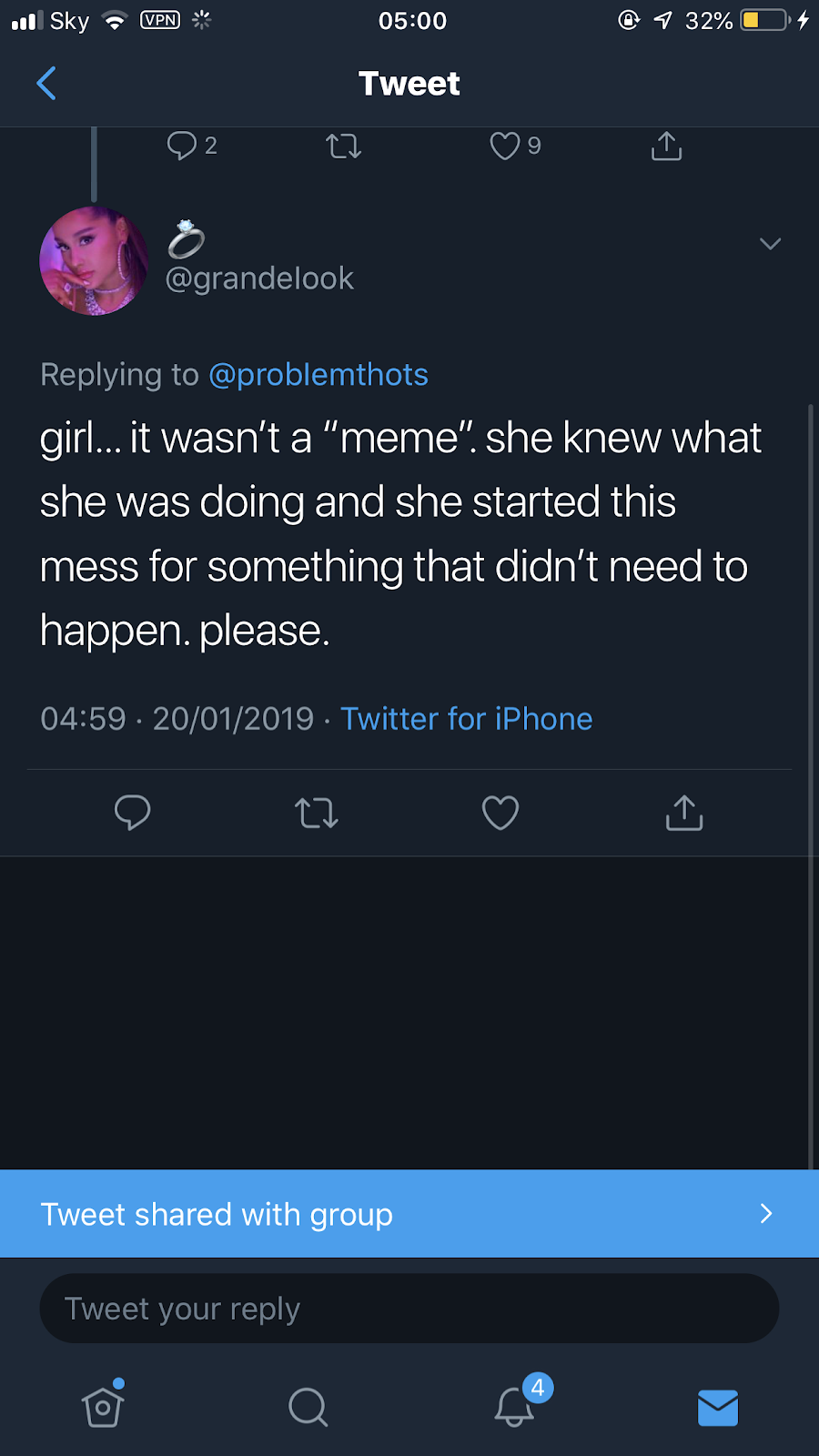
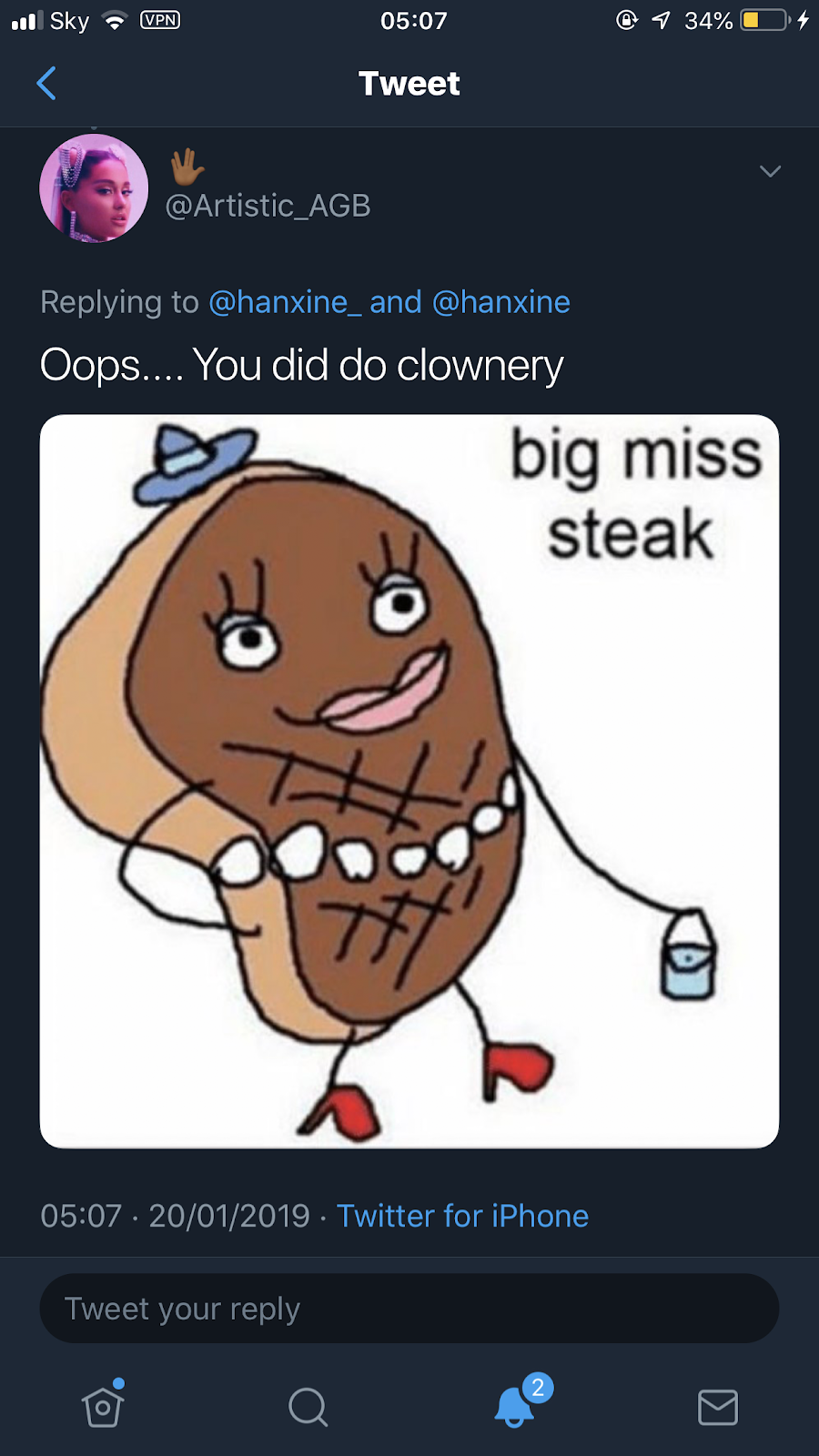
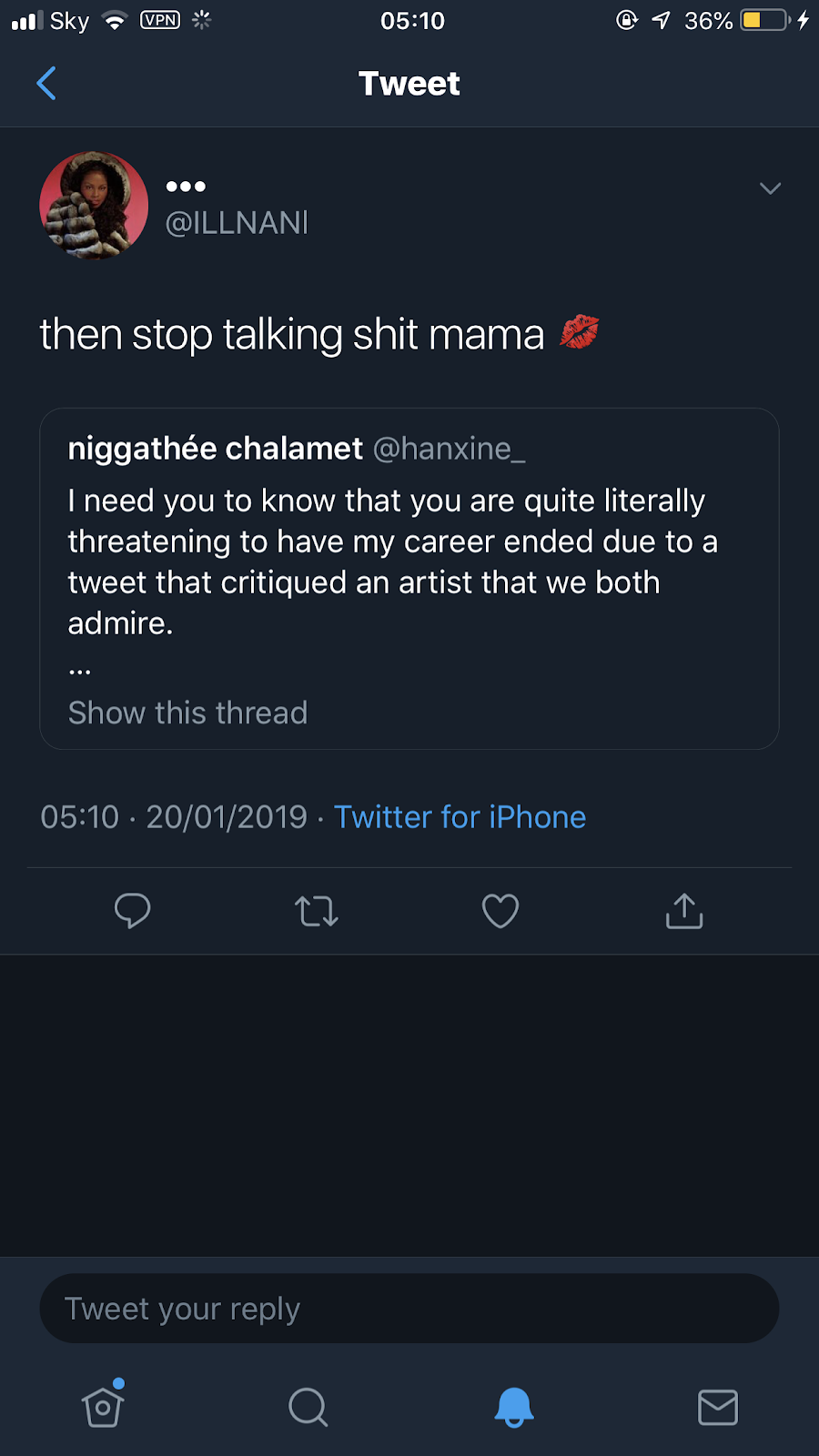
 A few of the posts I received in reaction to my suspension.
A few of the posts I received in reaction to my suspension.
But why do these things happen? Why do hordes of fans maliciously attack critics? Why do ?stans? behave in such an obsessive manner? Some say that social media is to blame and that isn?t a completely ludicrous view. As stated earlier, stans existed long before the age of the Internet, but the anonymity and the mass reach of social media allow their harassment and stalking to be extremely harmful while sheltering them from consequences. You can?t get a restraining order against an anonymous person who could use various accounts to stalk you. If stans are harassing those critiquing their favourite celebrity, blocks may prove futile, as they could make uncountable new accounts, and online harassment may continue until the aggressors get bored or the target finally gives in and deletes their account, whatever happens first.
I want to be positive when it comes to stans, I want to say hey! let these kids do what they want and oh, they?ll grow out of it, but I?m worried it may be too late. These stans have projected their own self-esteem issues and insecurities upon celebrities that make them feel whole. I know this because I did this, and many of my friends did this. Maybe obsessive fanaticism is an inescapable part of growing up, and maybe stans will come across this article and drag me for it. They will say that I?m being extra and that I just want clicks but ? while I do want clicks, that?s why we?re all here, right? ? I am genuinely worried. What was seen as fringe behaviour before ? the invasion of privacy, obsessive fantasies, aggression and possessiveness, absolute disregard for others? wellbeing ? seems to be expected now in order to be ?a true fan?. I?m worried that this has become the new norm for celebrity culture, and that the popularization of ?standom? has cemented this behaviour for years to come.
Edited By: Andrea Merodeadora
If you want to support me and enjoy my long-form essays:
Cashapp; hanangus
Paypal;

